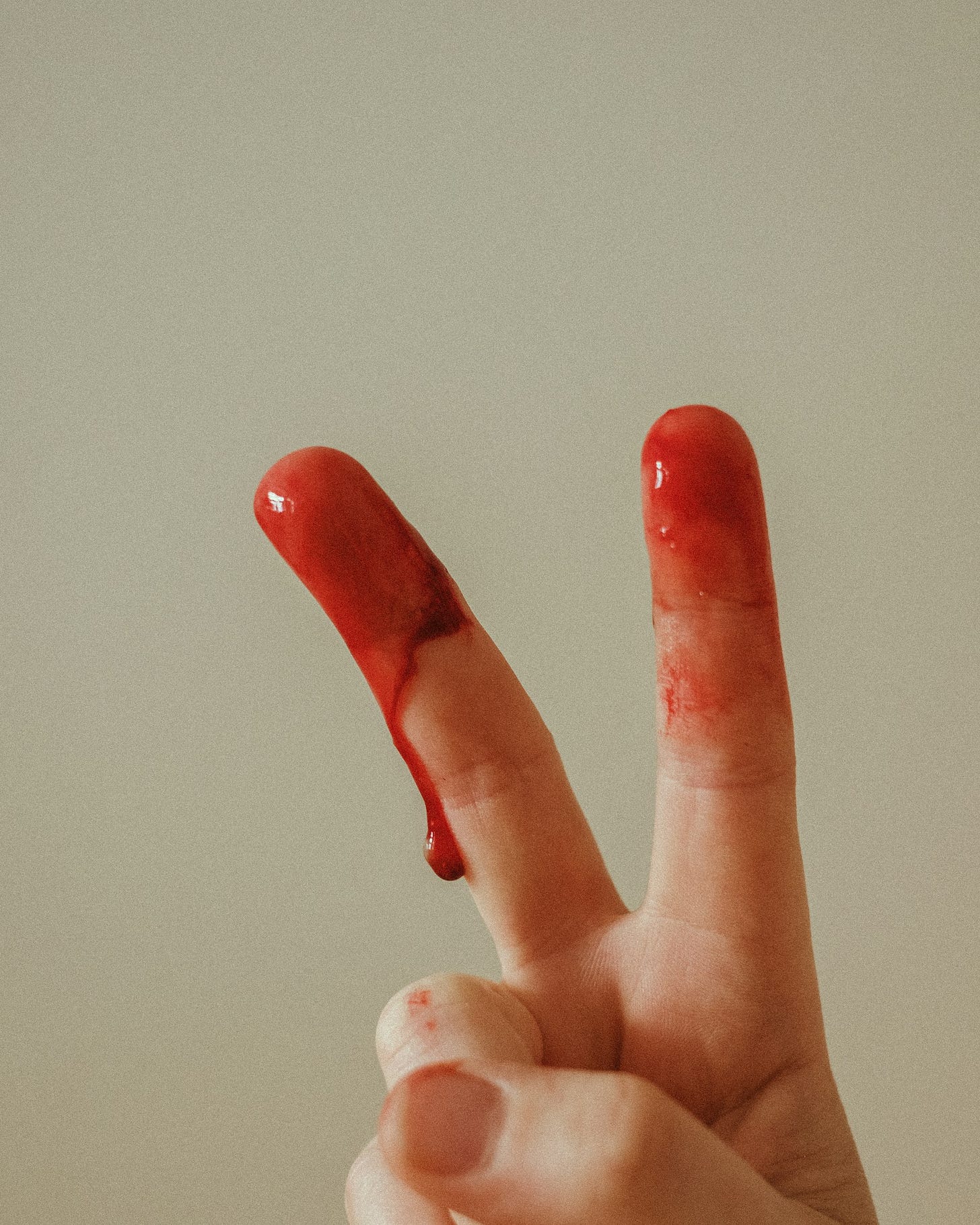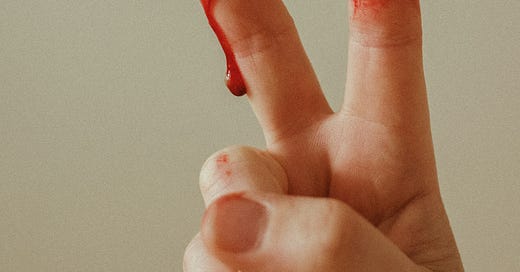This morning I checked my period tracker app to confirm what I suspected: it's been one year since I last had a period. Perhaps if menopause hadn't been so gnarly, I would see this one-year anniversary as something to recognize. Now I'm praying I'm on the down slope, as menopause officially begins when it’s been one year since your last period. I know friends who went for two years without a period, only to have it suddenly return, like an ex you finally stopped hating for their shitty behavior and then they send you an email to ask how you’re doing.
I have a photo from the day I got my first period at the age of 11, though I'm the only one who knows it. The photo is of Deena, me, and another neighborhood friend, Pepper*, sitting on the couch at a neighbor's house, laughing. Deena had shoved an entire pack of Bubblicious bubble gum in her mouth and was trying to blow bubbles bigger than her head, only to have them pop when they got past her nose. Even as I laughed at Deena's ridiculousness, I was aware of the maxipad in my underwear, wondering if anyone could tell by looking at me that my period had begun, wondering if this meant my friendships were about to shift. I grew up reading Are You There God? It's Me Margaret with its emphasis on puberty and development for a group of tween girls, and how competitive and divisive girls can get when it comes to growing breasts, shaving legs, or getting their period.
Back when my period first started, the standard response was "you're a woman now." As I enter menopause, society is working toward no longer ascribing gender to this biological process. We talk now about "people who menstruate" to be inclusive of those who are nonbinary or transgender. Menstrual rights are now considered a basic human right, and while menstrual leave has yet to become common practice in the U.S., there are companies offering this benefit. We've moved past using euphemisms and advertisers actually use the word "period” now in ads for menstrual hygiene products. We’re talking about periods more, which is great…yet someone's ability to reproduce, and their choice whether to actually do so, is being discussed and debated by people who have never been doubled over in pain from cramps, or who haven't soaked through their tampon and into the crotch of their jeans because their flow was extra heavy. It all boggles the mind, because you’d think for all the chatter about reproductive rights, there would be way more money spent to ensure expectant mothers are at their healthiest and happiest so that they can make healthy, happy babies who grow up to be healthy, happy taxpayers adults. You’d think there would be an infinite number of resources for those who opt to have children. But biomedical research on women’s health continues to be poorly funded1, and maternal mortality rates are getting worse, particularly among Black and Indigenous women.

Among my peers, the competition from puberty has shifted toward being the first to go on HRT, or the first to be free of hot flashes or night sweats. No one explained to us in those early years what it would be like as we approached the end, that we would still need to stow a pad or liner or tampon in our pocket or bag, just in case. Our moms, closer to the menstrual finish line at that point in time, may not have realized that we go out the way we come in, with mood swings and unpredictable cycles, morphing breasts and bellies and hips. Or maybe they didn’t want to scare us, knowing that we’d be entering a world that would scare us way too much, just by nature of being someone who menstruates.
I have a photo taken around the time of my last period, as it turns out. I'm standing alone in the hallway by my room, smiling. My hair is silvery grey, similar to Momcat's when she was in her 50s. I'm wearing a denim jacket with a brooch I got at a flea market in my teens, embracing a look I first wore closer to the menstrual starting line. At first glance, the differences between this photo and that first one are stark. When I look at them more closely, I see there are commonalities: curiosity about what comes next, resignation that I cannot avoid the inevitability of this part of life. What neither photo captures, however, are my wish that future generations of menstruators don’t need to fight for their right to have safe, healthy periods that are free of pain, or their right to decide how, if, and when to reproduce.



